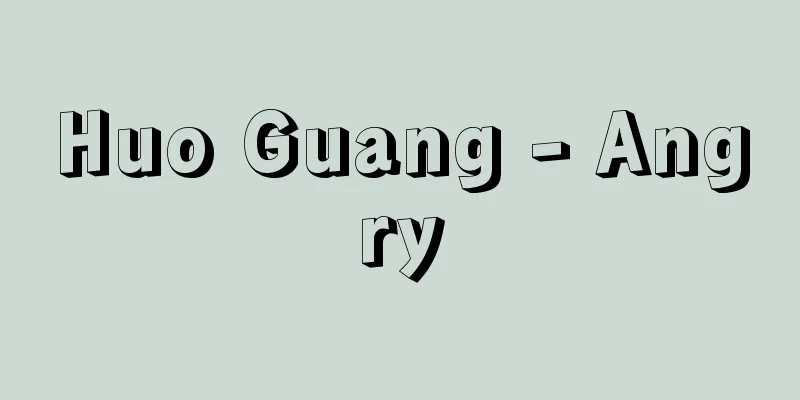Huo Guang - Angry

|
A Chinese politician in the mid-Western Han Dynasty. He was the half-brother of Huo Qubing. As a result, he was selected as a close aide to Emperor Wu at a young age, and served as Chariot Commander and Guanglu Xun. After Emperor Wu's death, he made his granddaughter the empress of Emperor Zhao, and wielded power, which put him at odds with Shangguan Jie, Sang Hongyang and others who supported the continuation of Emperor Wu's policies. In 80 BC, he took advantage of the rebellion of Yan Wangdan to wipe out these political enemies. He then supported Emperor Xuan, and all of his family members held prominent positions, and the power of the Huo family reached its peak. However, when he died in 68 BC, the emperor began to rule directly, and the Huo family was branded as having rebelled and wiped out. During the reign of Emperor Zhao, Guang served as Grand Sima Grand General and Minister of State, and exercised sole authority over politics in the Inner Court along with military affairs. After this, the Outer Court under the rank of Prime Minister came to function merely as an administrative office. When the Inner and Outer Court institutions lost their close relationship, the emperor's consistent political function weakened, and factions formed and began to fight among themselves. It is important to note that Huo Guang's political form of sole authority over the Inner Court was the source of party strife among the emperor's maternal relatives and eunuchs during the Later Han Dynasty. [Takashi Yoshinami] Source: Shogakukan Encyclopedia Nipponica About Encyclopedia Nipponica Information | Legend |
|
中国、前漢中期の政治家。霍去病(かくきょへい)の異母弟。そのために若くして武帝の側近に抜擢(ばってき)され、奉車都尉(とい)、光禄勲(こうろくくん)を歴任した。武帝没後、孫娘を昭帝の皇后とし、権力を振るったので、上官桀(じょうかんけつ)、桑弘羊(そうこうよう)ら武帝政策の継承派とは対立した。紀元前80年、燕王旦(えんおうたん)の謀反事件に乗じてこれら政敵を一掃した。さらに宣帝を擁立して一族すべて顕官を占め、霍氏の権勢は頂点に達した。しかし、前68年に彼が死ぬと皇帝親政が始まり、霍氏は反逆の汚名を着せられて族滅された。光は昭帝期には大司馬大将軍で尚書を兼ね、軍事とあわせ内朝にあって政治を専断した。こののち、丞相(じょうしょう)以下の外朝は単なる行政事務機関として働くにすぎなくなった。このような内・外朝という機構が密接な関係を失うと、皇帝の一貫した政治機能が弱化し、党派が形成されて相争うようになる。霍光の内朝専権という政治形態は、後漢(ごかん)期における外戚(がいせき)、宦官(かんがん)の党争の源となった点で見過ごすわけにいかない。 [好並隆司] 出典 小学館 日本大百科全書(ニッポニカ)日本大百科全書(ニッポニカ)について 情報 | 凡例 |
>>: Careful work - Careful work
Recommend
Digul (river)
The largest river in Irian Jaya, in the western ha...
social phobia
… The most common neurotic fear is the fear of go...
December 9th Movement (English spelling)
On December 9th, 1935, a demonstration against Jap...
Gulf of Thailand
Siam Also called the Gulf of Siam. A deep gulf tha...
People who live in the sea
A full-length novel by Hayama Yoshiki. Published ...
Government affairs - Kanmu
〘Noun〙① A title given to the Left Chief Historian,...
Sea grass
It is a large marine plant, but usually refers to...
Conformational analysis - Haizakaiseki (English spelling)
A method of determining the conformation of a mole...
Sapodilla - Sapodilla (English spelling)
An evergreen tall tree of the Sapotaceae family (...
Yoknapatawpha (English spelling)
A fictional place that serves as the backdrop for ...
Oligomer - Origomaa (English spelling) oligomer
A polymer formed by low polymerization of monomer...
Narcissus jonquilla (English spelling)
…[Hiroshi Aramata]. … *Some of the terminology th...
Face Height - Ganmenkou
…Facial height divided by facial width, a numeric...
Yellowing - Teeth biting
To have a yellowish tinge. Also, the state of bein...
Fallow cultivation - Kyuukankou
...However, in the third year, the land was left ...









